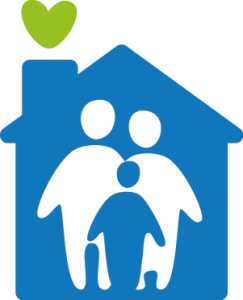
The coronavirus pandemic and lockdown continues to be such an unpredicted situation for everyone. It is hard to understand the full impact that the situation is having on children and young people’s mental health and wellbeing. Children’s experiences of the lockdown will be extremely varied. For some it will have been a safe and enjoyable time, for others it will have been challenging and maybe even traumatic.
This article is designed to help teachers and parents who are preparing for children to return to school and offers practical advice and support. It outlines some of the challenges that schools are likely to be facing as and when children start returning.
The challenges that pupils and schools are facing Loss and bereavement
Some children will have sadly lost relatives or family friends during the lockdown due to the coronavirus and other illnesses. For many children they will have been aware of relatives or family friends being seriously unwell and hospitalised. For other children, there will have been other types of loss – for example, parents who have been furloughed or even lost their job, a home move or they may have experienced longterm isolation from a parent if parents are living separately and other important figures in their lives such as grandparents.
All of this will lead many children to experience a sense of grief. The way that children respond to these feelings of loss and grief will differ widely – some may seem sad or withdrawn, others may appear anxious or angry.
Challenging experiences at home
For many children when they entered lockdown they may have already been experiencing challenging home environments. Families being quarantined at home together will likely have amplified these challenging circumstances. Others may have faced these challenging experiences for the first time. These might include domestic violence, abuse or neglect, family conflict, financial concerns – e.g. loss of employment for parents, hunger and lack of nutrition, worry about relatives who are continuing to work and many more. With this in mind, it is likely that significantly increased pastoral care resources will be required on the return to school for many children.
Uncertainty about the future
The sudden and unprecedented changes that lockdown has created on many people are likely to have left many children feeling uncertain and unsure about what the future might look like. For some children, they might be a fear of a second lockdown, for other children they may have a general sense that things that used to feel safe and predictable, such as school may have significant changes and may now become something they can no longer rely on or safe with.
Transitions

As some lockdown measures are slowly being lifted, some restrictions are likely to continue through to the end of the school year and possibly into the new school year. The preparation that would usually take place with children for their transition to the next school year may be affected. This may be particularly challenging for children who are due to start school, move to a new school and those who are leaving school.
Friendships
Friendships may have changed and been affected due to a lengthy period of social distancing. Some children may have communicated with friends over social media regularly; others will have had little contact with their friends, whilst others may have had no contact with their friends at all. As peer groups are an important source of support for many children, this may mean that many will have lacked a vital source of support in managing the stresses of the lockdown period and could significantly influence their behaviour.
Younger children are likely to be excited about seeing their friends again, however some may struggle with the social distancing rules and restrictions put in place at school. Many schools are putting pupils into ‘friendship bubbles’ this may cause excitement for some children, however can also cause fear and uncertainty if not placed with their usual friendship circle.
Safer at home
For some children, school may not feel like a safe place to be and the lockdown will have been a welcome break from it. For these children, the challenge of returning to school will not be what has happened whilst school was closed but the prospect of going back. This may particularly be the case for pupils with physical and learning difficulties whose needs may be more easily met at home.
Supporting children to return to school
Below is some information that offers guidance on things to keep in mind when planning the transition and talking to children and strategies to help rebuild relationships.
Everybody is different
It is important to recognise that different pupils within the same class will have had very different experiences of the lockdown period. They will also have varying levels of coping skills and resilience in dealing with those experiences. Therefore, it is important to have an open mind about what children may be going through and how they are
coping.
Different emotional responses

Given that there are many kinds of loss that children may have experienced over their time away from school, teachers and parents may see different kinds of emotional responses. Children will respond in different ways to challenging experiences. The same child may display different responses from day to day.
Do not dismiss concerning behaviour
When something momentous happens, it can be tempting to see everything in that context. However, whilst the return to school is likely to cause some challenging behaviours from some children, it is important to not ignore signs that something more serious is going on. A significant change in the child’s mood that lasts longer than a few days is something for parents and teachers to look out for which may be a cause for further concern.
These changes may include low energy, withdrawal from social interactions with friends, difficulty concentrating, being tearful, a change in weight (appetite is often affected by mental health struggles), tiredness lasting for more than a few days, angry outbursts which are out of character and any signs of self-harming behaviour.
Learning might have to wait
It is important for parents and teachers to acknowledge that children may not feel able to jump straight back into learning immediately when they return to school. Disrupted ability to focus is a common experience for children who have experienced bereavement or trauma.
Immediately returning to scheduled lessons might lead to disruptive behaviour as children get used to seeing each other again and rebuilding friendships.
Disrupted attachments – It is important to understand that many children will have experienced disrupted attachments during the lockdown. Attachment is a concept that many think of in relation to very young children, however it is relevant throughout the whole of life. Older children have attachment relationships with key adults in their lives as well as friends. If these relationships are broken or affected in any way, children will likely experience a level of emotional distress.
Children may find it difficult returning to school and being away from their parents who they have spent so much time with over the previous months. They may also find it difficult if familiar members of staff are not present on arrival or if they are placed with an unfamiliar teacher due to class sizes being reduced and some children working from different classrooms, which may not be familiar to them.
Trauma

The coronavirus situation has been a shared experience of trauma for individuals as well as communities. There is a need for children to process and understand exactly what has happened, to grieve the losses and to work together to find a way to move forward. Children who are returning to school following a traumatic experience such as bereavement or abuse will need to be supported by teachers that are actively listening, understanding and can respond in appropriate ways. If you are a parent of a child who is returning to school after experiencing trauma, speak to their school to ensure your child will receive the appropriate support needed and ensure members of staff are familiar with what your child has experienced whilst being away from school.
Practical tools and strategies
Acknowledge what has happened
Whilst many find dwelling on the coronavirus situation not helpful, it is important to acknowledge exactly what everyone has been through over the last few months. It is important to acknowledge the sacrifices that people have been asked to make and the losses they may have experienced. Acknowledge the child’s emotions and understand that these emotions are ‘ok’ and show empathy and help the child manage these emotions.
A relaxed environment
For many children the return to school may be the first contact they have had with each other in many weeks/months. Going straight back into the usual timetable will likely be challenging due to children having a long period of time away from their usual daily routine. Many schools will be returning their pupils to a more relaxed timetable to what they are used to and instead allowing the children to familiarise themselves with the classroom and school environment again.
Offering extended ‘circle time’ for primary school children and regular check ins as a whole class can be a helpful way to share experiences and re-establish skills like listening to others, turn taking and concentration. Secondary school pupils could have extended registration periods to allow children to reconnect. Adapting activities that are often used during the primary to secondary transition process can also be used for all ages. Activities such as ‘Getting to know you’ and ‘All about me’
Opportunities to talk
Doing things as a group may help repair lost connections, however it is important to make sure that children are also given the opportunity to talk individually if needed. Even children who have had a relatively straightforward experience of lockdown may appreciate the chance to reconnect. It is important to keep offering children these opportunities over the week and months after school starts again, not just in the first few days.
If you would like to know more about how to adopt a child with Adopters for Adoption or would like to learn more about adoption, then please get in touch with our friendly team who will be happy to help.

